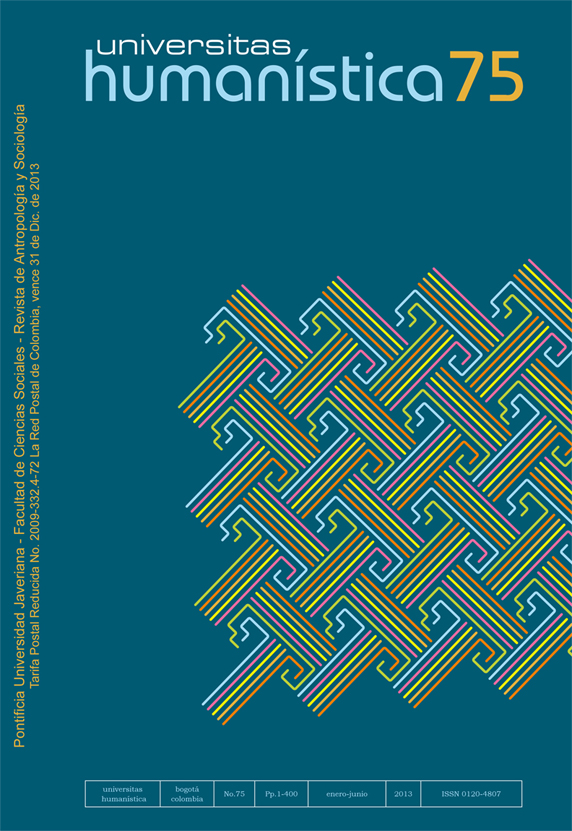Resumen
El presente artículo tiene como objetivo explorar de manera reflexiva y crítica las diferentes formas en que operan los poderes simbólicos en la antropología de lo muisca desde las preocupaciones planteadas bajo una perspectiva del sur. Con ello se pretende elaborar un paralelo entre los elementos que componen la crítica epistemológica y política de la antropología y aquellos que nos permiten entender la manera en que el pueblo muisca trata de ocupar una posición de centro en la actualidad, después de haber sido relegado al pasado y condenado a un accidentado reconocimiento como etnia oficial en el presente. La propuesta es hacer el tránsito hacia una antropología comprometida que le apuesta a las metodologías colaborativas. Con ello se podrían lograr los equilibrios entre lo epistemológico, lo ético y lo político a la hora de hacer una antropología “dupleja” que integre los cánones oficiales y los conocimientos gestionados por las comunidades estudiadas. 
La revista Universitas Humanística se encuentra registrada bajo la licencia Creative Commons Reconocimiento 4.0 Internacional. Por lo tanto, esta obra se puede reproducir, distribuir y comunicar públicamente en formato digital, siempre que se reconozca el nombre de los autores y a la Pontificia Universidad Javeriana. Se permite citar, adaptar, transformar, autoarchivar, republicar y crear a partir del material, para cualquier finalidad (incluso comercial), siempre que se reconozca adecuadamente la autoría, se proporcione un enlace a la obra original y se indique si se han realizado cambios. La Pontificia Universidad Javeriana no retiene los derechos sobre las obras publicadas y los contenidos son responsabilidad exclusiva de los autores, quienes conservan sus derechos morales, intelectuales, de privacidad y publicidad.
El aval sobre la intervención de la obra (revisión, corrección de estilo, traducción, diagramación) y su posterior divulgación se otorga mediante una licencia de uso y no a través de una cesión de derechos, lo que representa que la revista y la Pontificia Universidad Javeriana se eximen de cualquier responsabilidad que se pueda derivar de una mala práctica ética por parte de los autores. En consecuencia de la protección brindada por la licencia de uso, la revista no se encuentra en la obligación de publicar retractaciones o modificar la información ya publicada, a no ser que la errata surja del proceso de gestión editorial. La publicación de contenidos en esta revista no representa regalías para los contribuyentes.


